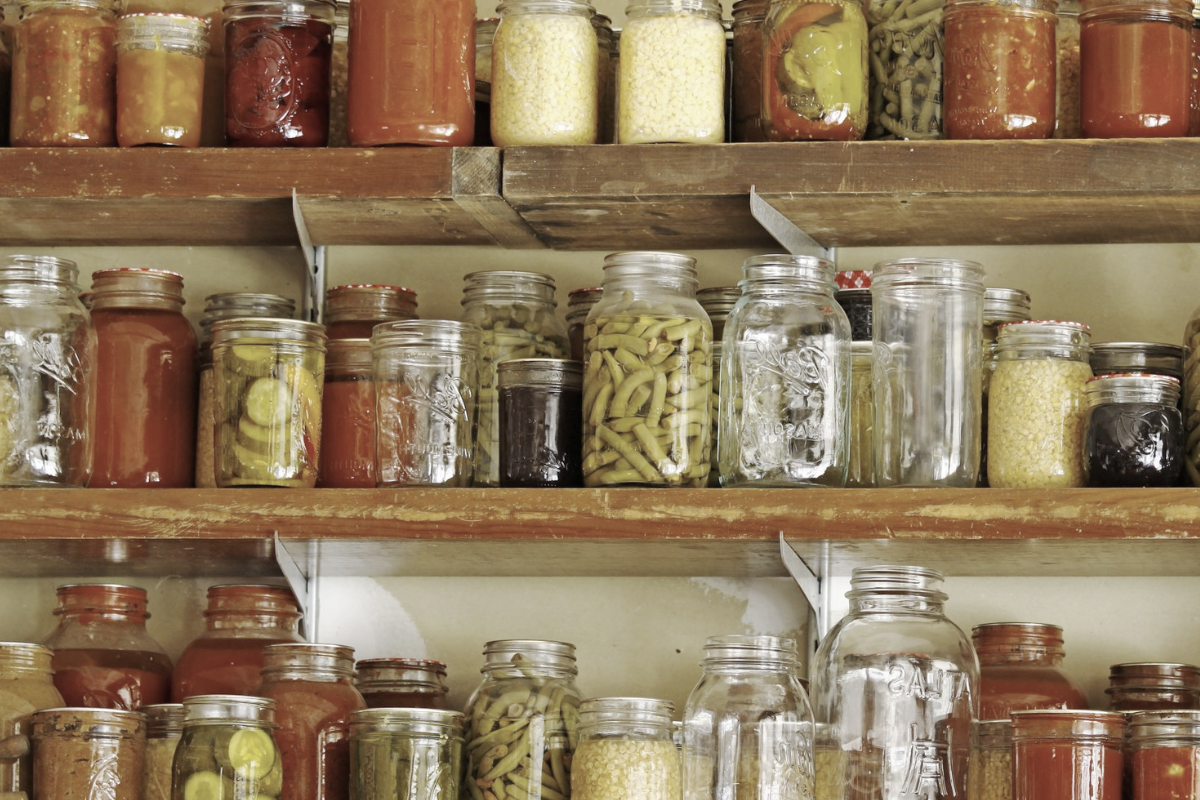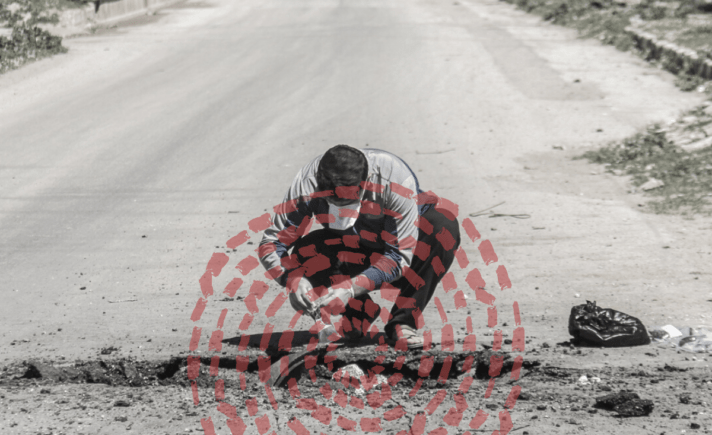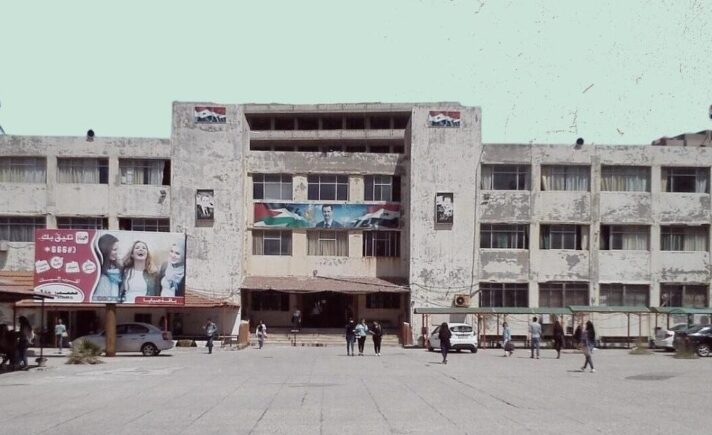Summer Vegetables
In northwest Syria this summer, an increase in the production of summer vegetables and local fruit caused a decrease in their prices, which became more commensurate with consumers’ income. This price drop coincided with the period for the preparation of summer mouneh, the set of traditional techniques for preserving food into pickles, preserves and jams, and in turn opened the way for small home business projects to make a profit from preparing mouneh, selling it in the markets at prices and quality that compete with factory production.
The region’s farmers, by contrast, were negatively affected by the drop in prices, reaping only small profits from their crops. Some have resorted to reducing expenses by using solar energy systems to extract water, reducing the use of fertilizers, and irrigating using drip networks and spray irrigation, but to no avail. Some even say that the prices of vegetables are not worth the effort and costs of cultivating their land.
Local mouneh projects, however, are increasing. “Mouneh From Our House to Yours” is a simple project created by seven brothers displaced from the town of Jarjanaz to the village of Muhambal in the western countryside of Idlib, where they provide free home delivery service. They promote their products through a WhatsApp group with about 600 subscribers, and a Facebook page. Muhammad al-Daghim, one of those in charge of the project, says that using social media helps them “promote products and deliver them to the doors of homes in several cities within Idlib Governorate, and to create an atmosphere of competition with imported goods.”
In his workshop, al-Daghim makes tomato paste, cooked tomatoes, red pepper paste, dried molokhia, dried cored aubergine and various jams. He shops for his vegetables at the market in Jisr al-Shughur, and sends the products to his two brothers, who in turn work to distribute the products in the Sarmada area and the camps at Atme.
Al-Daghim says that his small enterprise consists of a simple workshop, a car for distribution, and a machine for making red pepper molasses to speed up the production process. According to him, the project achieves an acceptable financial return for him and his brothers, considering the difficult living conditions. He agrees that current prices are conducive to increasing the production of his small project, but expresses his regret for the farmers who have been affected by low prices.
Honey and Beekeeping
With the high cost of living and the lack of job opportunities, beekeeping has become a practical solution for many in northern Syria. Bees offer a valuable natural service to farmers by pollinating crops and trees without incurring any costs, as well as producing beneficial materials like honey, pollen, royal jelly, and beeswax. Typically, beekeeping serves as a supplementary occupation aimed at augmenting income, rather than being the primary source of livelihood for most practitioners.
However, beekeeping has been significantly impacted since 2019. Yasser al-Abdullah, director of a beekeepers’ association in northwest Syria, explains that the loss of vast grazing areas during military operations, along with climate fluctuations and untimely flowering, has had a detrimental effect on native Syrian bee populations in recent years, forcing beekeepers to replace them with more expensive foreign breeds.
Honey production and quality have suffered a decline in recent years, specifically since 2019, following the Syrian regime forces’ recapture of extensive territories in the countryside of Idlib, Aleppo, and Hama. These areas encompassed crucial natural pastures for bees in northwest Syria, abundant with flowers like black seed, anise, coriander, sunflower, and summer vegetables. To compensate for the dearth of pastures, beekeepers resorted to importing new “hybrid” queen bee types that yield superior female bees compared to Syrian bees.
Ahmed al-Masri, a beekeeper from the town of Meshemshan in the countryside of Jisr al-Shughur, possesses 150 beehives. He tells us that there is a significant price gap between retail and wholesale honey sales, attributed to the abundant supply of honey. Wholesalers exploit the presence of low-quality honey in the market to drive down the price of natural honey and maximize their profits. Al-Masri produces natural honey but is compelled to sell it at a market price of less than $8 per kilo. When customers visit him directly, however, he sells it for $12. Recently, due to the substantial price difference, al-Masri reluctantly sold his honey, wax, pollen, and royal jelly production to a wholesaler, believing that obtaining the money all at once is preferable to accumulating his apiary’s production throughout the year and relying solely on retail customers.
Beekeeping in northwest Syria is beset with challenges given the current circumstances. A prominent difficulty faced by beekeepers is the inability to market their products abroad, for example in the Gulf countries, Lebanon or Turkey, due to limited domestic consumption. The costs of production and transportation between pastures have increased due to expensive fuel prices. Moreover, the market is flooded with imported honey-like products at low prices, leading to price conflicts for natural honey.
Muhammad al-Rahmoun, from Maarat al-Nu’man countryside in southern Idlib, encounters many hardships in his work. Securing essential supplies such as sugar, which has witnessed a steady rise in price (with one ton costing around $850), proves challenging, while the price of wax has reached $12 per kilo. This is in addition to the expenses for medications used to combat bee pests and diseases.
Beekeepers in Syria unanimously agree on the declining state of their profession. The limited availability of pastures in what are practically besieged areas fails to meet the demand of the growing number of beehives. Hajj Abdo, a beekeeper from Jisr al-Shughur, confirms this, recalling how he used to travel with his hives across Homs, Damascus, Raqqa and Idlib in search of natural pastures. Presently, bees struggle to survive in the confined area between al-Bab to the east and Jabal al-Turkman in the Latakia countryside on the west.
The deterioration of beekeeping can be attributed to various causes. These include the replacement of indigenous bee breeds that are well-suited to the region and its environment with hybrid strains, resulting in a decline in honey quality, in addition to mixing impure honey with genuine varieties and the difficulty of marketing honey beyond areas outside the control of the Syrian regime in northern Syria.
Farming in Jabal al-Zawiya
“I feel that the trees are what protect us in battle. We take shelter among them during the bombings.”
Farmer Ali al-Droubiyah talks about his trees as part of his family. He lives in the town of Ihsim in Jabal al-Zawiya, south of Idlib, nestled among fig, mahlab, olive and cherry trees.
Ali al-Droubiyah walks daily among the trees, checking if they are unwell, and lives with them “in sickness and in health.” He refuses to leave his land and home despite the repeated bombing targeting the area: “The mountain is better than the north,” he says, referring to the camps spread across the Syrian-Turkish border.
The Jabal al-Zawiya region is exceptionally agricultural. The majority of its people practise agriculture, and its environment is suitable for all types of crops, especially fruit trees. Agriculture in Jabal al-Zawiya plays a role in achieving food security for the region’s residents, as 90 percent of them depend on agricultural land products.
Agriculture in the mountain causes no small difficulty for the farmer, Al-Droubiyah says. He no longer achieves the profits he once did, mainly due to his orchards’ proximity to the front lines, threatening residents’ safety and preventing him from taking good care of the trees and employing workers. He adds, “The farmer fears the regime and its militias, and must hide for hours among the trees to avoid being seen by the reconnaissance planes that never leave the sky. The air has also become polluted by the explosive materials used in bombing operations almost daily, and the costs of extracting water from wells have also increased significantly. We have other problems, such as a shortage of workers due to low wages. They are not enough for the workers and are beyond the capacity of the farmer, whose crops have dropped in price.”
Mahmoud al-Ahmad, a farmer from the village of Shanan in Jabal al-Zawiya, tries to move early in the morning to work on his land before the almost daily bombing of the area. “Fear haunts most of the residents living in the region,” he says. “Fear of bombing, landmines, weather and price fluctuations, crop depression, exposure to diseases… Fear is a trait common to all farmers.”
Jabal al-Zawiya has not known stability since the spring of 2011, and it has remained exposed to continuous bombardment since the expulsion of Syrian regime forces from it in 2012. The deterioration of the security situation in Jabal al-Zawiya has contributed to the decline of the agricultural sector, and people are now facing difficulty harvesting crops – especially from lands close to the lines of contact and monitored by the regime, which bombs these lands while crop harvesting teams are present.





